The Aftermath is an important contribution to the literature of Holocaust testimony. Read it and you will be moved by the pain and courage of a man who has witnessed the victory of evil as well as its downfall.
— Elie Wiesel, Author and Nobel Peace Prize Laureate
The Aftermath tells of the unspeakable sufferings of the Jewish people. Accounts such as this are a great source of sadness to me. At the same time, the spirited determination of the Jewish people to survive and succeed has been a great source of inspiration to us Tibetans. There are great similarities between the attempts to eliminate the two nations, and the remarkable will of both people to rebuild their lives and maintain their traditions with love and hope. I am heartened to know that even after experiencing the cruelty of the concentration camps. The author still believes in basic human goodness.
— His Holiness the Dalai Lama, Nobel Peace Prize Laureate
The Aftermath is a spellbinding tale of loss, recovery and integration of self. I was riveted as the author, in his search for Lydia, takes the reader through the chaotic landscape of newly liberated Europe. The narrative unfolds with the suspense of a good detective novel. With its forward movement and its chilling flashbacks. It opens up a unique perspective on the post-Holocaust world.
— Yehudi Lindeman
As fresh as if it was written yesterday. Lilienheim’s memoir of flight rings with courage and the will to struggle for life and decency. It is a moving testimony to the true meaning of love and friendship.
— Frank Chalk, Historian, Concordia University
The Aftermath’s haunting story and compelling questions leave the reader to contemplate the meaning of human existence. It is a book to be read and reread.
— Bill Surkis, Executive Director, The Montreal Holocaust Memorial Centre
Survival Story
Dan Pearson, Daily Southtown (1995)
The Aftermath: un témoignage inestimable
Benjamin H. Leblanc, le Quartier libre (1995)
“We did not perish”
Susan Schwartz, The Gazette (1994)
Launch of book and film on Holocaust
Michael Rabiger, The Sentinel
The Iron Box
Mark Shainblum, a&e Books (1994)
Love not lost
Glencoe News
Book deals with Holocaust pain
The Canadian Jewish News
Survivor’s Aftermath
Henry Lilienheim
About the author
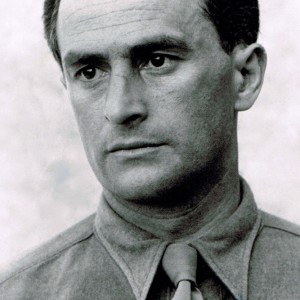 Henry Lilienheim was born in Warsaw, Poland in 1908. His parents owned a shop on the main street in Warsaw, where they made and sold silk flowers. His father was also a writer, but none of his writing survived the war. Henry Lilienheim was educated as an engineer in France before returning to Warsaw. At the beginning of the war, he an his bride Lydia fled to Vilna, Lithuania, thereby escaping the liquidation of the Warsaw ghetto, which claimed the lives of their parents and most of their family. Captured by the Nazis, he spent the remainder of the war in concentration camps. In 1949, he immigrated to the United States where he spent his professional life working as a successful international attorney. An essayist and poet, he speaks and writes in nine languages. He and Lydia had a son, Michael, a daughter, Irene, married to Abbey Neidik, and a grandson, Toben.
Henry Lilienheim was born in Warsaw, Poland in 1908. His parents owned a shop on the main street in Warsaw, where they made and sold silk flowers. His father was also a writer, but none of his writing survived the war. Henry Lilienheim was educated as an engineer in France before returning to Warsaw. At the beginning of the war, he an his bride Lydia fled to Vilna, Lithuania, thereby escaping the liquidation of the Warsaw ghetto, which claimed the lives of their parents and most of their family. Captured by the Nazis, he spent the remainder of the war in concentration camps. In 1949, he immigrated to the United States where he spent his professional life working as a successful international attorney. An essayist and poet, he speaks and writes in nine languages. He and Lydia had a son, Michael, a daughter, Irene, married to Abbey Neidik, and a grandson, Toben.
Written by Henry Lilienheim
Published by DC Books
Edited by Irene Lilienheim Angelico, Abbey Neidik and Mark Pendergrast
Cover by Gerald Luxton
Cover Art by Henry Lilienheim

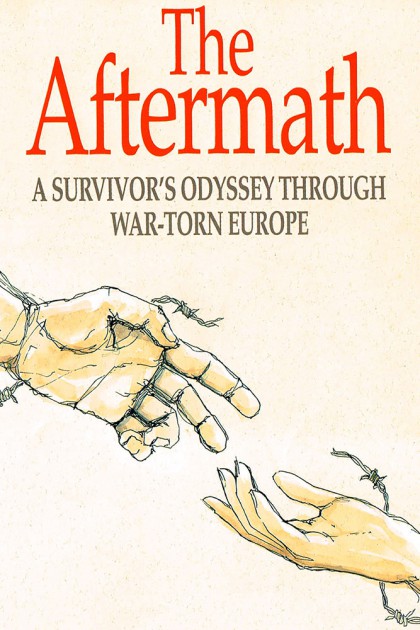
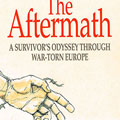
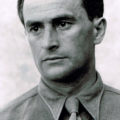
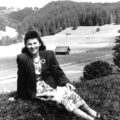
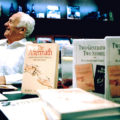
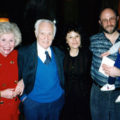
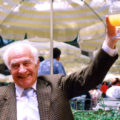
 Henry Lilienheim was born in Warsaw, Poland in 1908. His parents owned a shop on the main street in Warsaw, where they made and sold silk flowers. His father was also a writer, but none of his writing survived the war. Henry Lilienheim was educated as an engineer in France before returning to Warsaw. At the beginning of the war, he an his bride Lydia fled to Vilna, Lithuania, thereby escaping the liquidation of the Warsaw ghetto, which claimed the lives of their parents and most of their family. Captured by the Nazis, he spent the remainder of the war in concentration camps. In 1949, he immigrated to the United States where he spent his professional life working as a successful international attorney. An essayist and poet, he speaks and writes in nine languages. He and Lydia had a son, Michael, a daughter, Irene, married to Abbey Neidik, and a grandson, Toben.
Henry Lilienheim was born in Warsaw, Poland in 1908. His parents owned a shop on the main street in Warsaw, where they made and sold silk flowers. His father was also a writer, but none of his writing survived the war. Henry Lilienheim was educated as an engineer in France before returning to Warsaw. At the beginning of the war, he an his bride Lydia fled to Vilna, Lithuania, thereby escaping the liquidation of the Warsaw ghetto, which claimed the lives of their parents and most of their family. Captured by the Nazis, he spent the remainder of the war in concentration camps. In 1949, he immigrated to the United States where he spent his professional life working as a successful international attorney. An essayist and poet, he speaks and writes in nine languages. He and Lydia had a son, Michael, a daughter, Irene, married to Abbey Neidik, and a grandson, Toben.